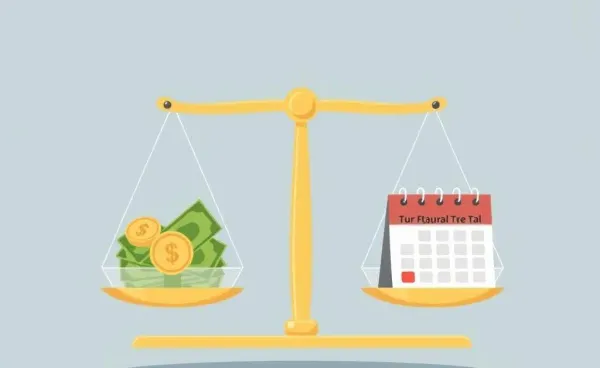Navigating Midlife Finances: From Confusion to Confidence
Struggling with midlife financial decisions? Discover practical solutions in our friendly guide.

Have you ever found yourself in the middle of a life filled with financial questions and not exactly sure where to start? You're not alone. Many people in their midlife find themselves juggling multiple financial responsibilities and trying to make informed decisions for their future.
Identifying Your Financial Goals
The first step in tackling midlife finances is understanding your goals. What do you want to achieve? Whether it's saving for retirement, paying off a mortgage, or funding a child's education, having a clear picture can guide your decisions.
Let me share an anecdote: My friend Sam recently realized at 45 that he had never really defined his financial goals. It wasn't until he sat down with a piece of paper and jot down what he truly wanted that things started making sense. Suddenly, saving for a trip to Italy or buying a more fuel-efficient car became more achievable because he had a target in mind.
Creating a Realistic Budget
Budgeting might sound dull, but it's your roadmap to financial freedom. Start with:
- Listing all sources of income
- Tracking expenses categorically—housing, groceries, leisure
- Identifying unnecessary expenditures
- Setting a specific saving target each month
By aligning your spending with your priorities, you can ensure that you're directing your hard-earned money toward what truly matters.

Investing: Understanding Your Options
Midlife is a great time to reassess your investment portfolio. It's crucial to ensure that your investments align with your long-term goals and risk tolerance. Consider diversifying your portfolio to mitigate risks and potentially optimize returns.

Are there certain terms or concepts you don't understand? You're not alone. Many of my clients at a finance workshop were surprised to learn that they didn't need to be experts to start investing—they just needed to educate themselves on the basics and choose options that felt comfortable.
Planning for the Unexpected
Life is unpredictable, and having an emergency fund can save you from financial distress. Whether a medical emergency or an unexpected home repair, having at least three to six months of living expenses saved can provide peace of mind.

Conclusion: What's Your Next Step?
Midlife financial planning doesn't have to be overwhelming. With clear goals, a realistic budget, and informed investment strategies, you can transition from confusion to confidence in managing your finances. Remember, it's never too late to start planning.
What's one financial goal you haven't set yet that you'd like to focus on?




